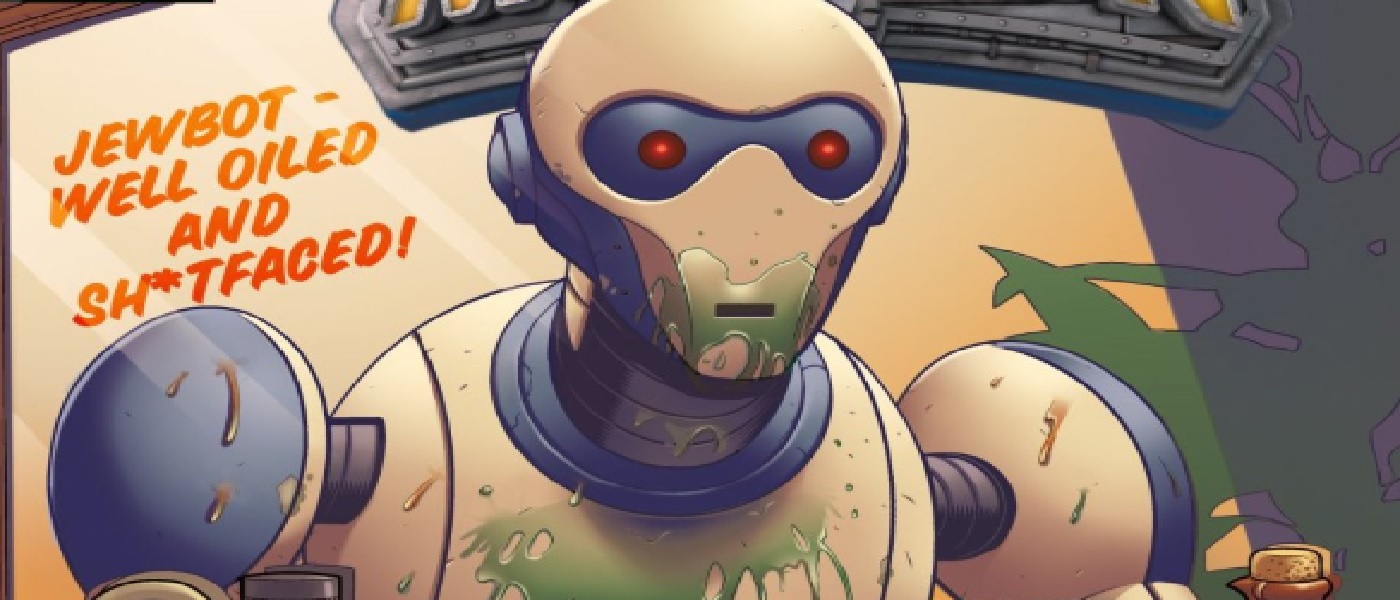COMICS REVIEW: SUPERMANSION #1
Crackle’s League of Freedom makes the leap to print with (mostly) super results.
The idea of SuperMansion comics makes a lot of sense to me, if only because stop-motion is such a grueling process that the team would surely welcome a change of pace. With all due respect to the animated series, it’s difficult to imagine pulling off this issue’s story in the show’s style, which is a promising indication of how the writers can make the comics their own distinct entity moving forward.
While there’s an impressively drawn opening battle against Psyclone, the issue largely shifts focus to reveal how the League of Freedom members interact with each other and themselves (literally, there are a lot of clones). As alluded to above, there are often multiple slightly different versions of characters within scenes that would have been a nightmare to produce in stop-motion. By contrast, I felt the breaks in pacing and scene angles provided by the comic format worked well. Meanwhile, given my love for stop-motion, I was surprised by how much I liked some of the stylized character models seen here. However, there were times when it was easy to mistake Brad for Titanium Rex, and overall the latter’s appearance was too far removed from the original series in my opinion.
SuperMansion is driven by great performances, and unfortunately, the lack of actors is detrimental to the humor here. This is arguably due to the issue being written by an author with a background in comics (Barry Hutchinson) rather than someone who has previously worked on the animated series; indeed, I had trouble picturing the banter between the League appearing in a typical episode, which might have been avoided through the cast’s knowledge of their characters. For instance, the unlikelihood of a deus ex machina that ultimately saves the day is acknowledged and dismissed by Rex, but without Bryan Cranston’s knowing delivery this feels lazy. As a final aside, I’m unsure why Jewbot features so prominently on the issue’s cover, since he’s (sadly) given very little to do.
Overall, this issue worked better as a comic than as a SuperMansion adaptation, although, in my opinion, it’s preferable to have a firm grasp on the medium in this early stage. In fact, it’s easy to speculate how the writers might make the dialogue feel more faithful to the show in future installments (i.e. more collaboration), so this issue likely isn’t of great concern. Longtime fans should be pleased with the potential this issue shows, and newcomers will probably enjoy it even more.
Score

























"There are also other characters that come and go (also owned by the Warner Bros. Discovery conglomerate media company)."
Huh. Is that just referring to other characters from the show itself, or is this implying that the new season is going to have cameos from other WBD IPs